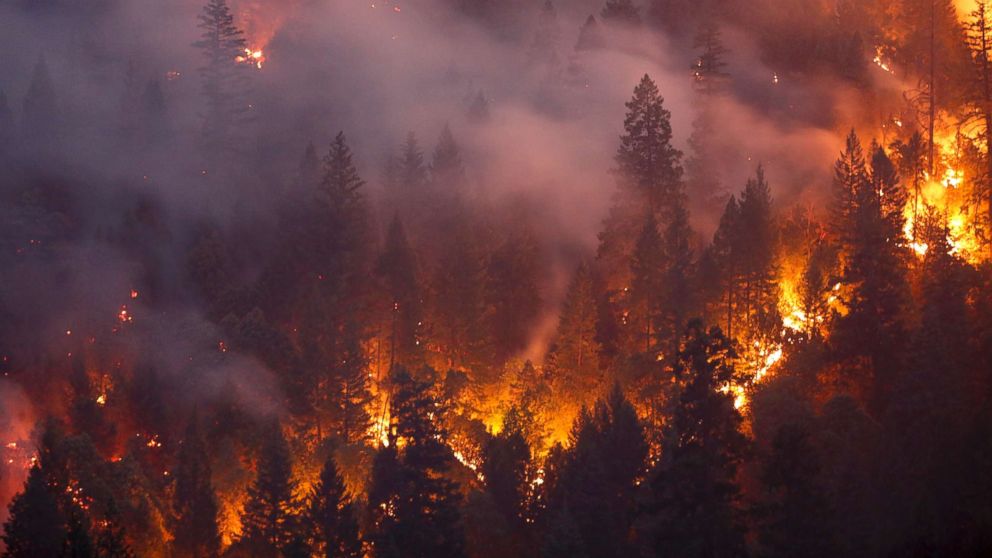
A scientific consensus is a general judgment or opinion about a matter. The consensus that Earth has been warming is the best. Human activities, including the burning of fossil fuels, have risen Earth's oceans and altered Earth's climate. But, scientists are not all in agreement. Indeed, some groups such as the National Academy of Sciences and the American Association of Petroleum Geologists hold non-committal positions. However, elected officials are not all in agreement with this view.

A new study that examined more than 88.125 climate studies indicates that there is a strong consensus. Although it may not be the definitive answer to the question, this survey shows that the public is more likely believe a well-researched assertion that is supported by empirical evidence.
The consensus is based in the fact that humans are known to have affected the climate for quite some time. This is a fact that has been borne out by the results of numerous studies conducted over the past few decades. In other words, the consensus is that the human race is responsible for much of the global warming seen today. The likelihood of global warming spreading to other regions of the globe will increase as carbon emissions continue increasing.
The skeptics are also doing a great job of underestimating consensus. In fact, there is no doubt that the vast majority of scientists agree with the prevailing viewpoint. There is a plethora of evidence that supports the hypothesis that man-made climate change is the dominant force in the Earth's climate. Scientists might also discover other factors that influence our planet's temperature.
You can only tell the truth by looking at the research. NASA Global Climate Change is one example. It is a compilation of peer-reviewed research papers from different research groups from around the world. It shows the quality and ability of NASA's science to address climate-related questions.

Another is the Skeptical Science study, which surveyed over 12,000 peer-reviewed abstracts on global warming. This study showed that 97% of these papers supported the most widely cited "skeptical proposition": that human activity is the main cause of rising temperatures. What's more, the paper's authors were not naive. They used an algorithm for searching for "skeptical" keywords, including natural cycles, cosmic radiations, and solar cells. These citations were among the most popular.
Let's look at the latest poll by Pew Research Center. According to the results, only about half of the public actually knows or believes that a scientific consensus has been reached on the subject. The name itself isn't a secret. However, only 19% of Americans are able to grasp the scientific consensus regarding global warming. This is a significant problem that must be addressed.
FAQ
What is the role of individuals and communities in addressing climate change?
Climate change is a major contemporary challenge. It is a major issue that affects everyone. Individual action and collective attention are needed to make an impact.
Individuals play a key role in combating climate change and reducing its effects. Your everyday behaviors could include reducing waste, conscious eating, changing your lifestyle, such as becoming vegetarian, choosing sustainable clothing and decor, and using public transport more frequently. They can also take part in advocacy and support initiatives that promote sustainability in their communities.
It is important that communities are involved in the larger climate change effort. They can also implement policies to reduce emissions, such as promoting electric and bicycle transportation, encouraging the use of efficient infrastructure, reducing deforestation, and encouraging waste management systems. This mission requires collaboration between communities in different cities and countries.
Civic education regarding climate change is essential from the beginning of education and throughout the lifelong learning process. This will allow individuals to be more aware and connected to other societies, even if they are not located near us.
Employers bear a huge responsibility for combating climate change. It is important that they adopt sustainable corporate practices and use green alternatives wherever possible.
Therefore individuals' actions plus community-wide policies together with business transformation will contribute immensely towards creating solutions against global warming and collectively defending humanity against longer terms harmful effects growing out from climate change.
What are the consequences of climate change for society and the environment?
The environment and society are both affected by climate change. Climate change has many environmental effects. These include rising global temperatures, increased extreme weather events and sea level rise. These changes can have devastating effects on human populations. They may lead to increased instability in communities and intensifying poverty as well as insect-borne diseases.
Already, climate change is having an enormous impact on the environment as well as societies around the globe. As global temperatures rise, this trend is likely to intensify in the near term.
Ocean levels rising due to melting ice caps is one of the most pervasive effects of climate change worldwide. This causes shoreline erosion along many coastlines and increases the risk of flooding for coastal communities. Also, saltwater intrusion occurs, which negatively affects freshwater supplies in coastal areas in many countries.
Climate change is causing extreme weather events like heatwaves, droughts and other severe weather to occur in many countries. These events result in mass destruction of homes or businesses and can lead to relocation or complete loss of life. Extreme storms also present risks of flooding or landslides which can cause further damage to infrastructure, such as roads and railways.
Climate change is also causing wildfires to become more frequent than ever before. This can have devastating effects on habitats as well as people living near them.
This drastic change in living conditions is often a result of displacement or even refugee situations. When people decide to leave their homes, either involuntarily or voluntarily, it can be because their town has become too dangerous or not habitable due the changed climate conditions.
Dust storms are also increasing in severity worldwide due to increased aridity. This makes it more difficult for asthma sufferers and other respiratory conditions. Additionally, pest infestations are likely to rise significantly in conjunction with higher temperature extremes (a phenomenon known as the "greenhouse bug") which can cause further damage to agricultural production. This could further affect global food security numbers. As fewer crops become available at poorer nutritional qualities, it may bring additional hardships on marginalized communities already struggling to make ends meets otherwise.
What's the potential for climate-change technology?
This global problem is a huge challenge that new technologies can address. The advancements in applied science allow us to make a transition to a sustainable future.
New methods of carbon capture and sequestration can be employed to draw down greenhouse gas levels, while enhanced agricultural practices can reduce emissions from livestock and soil degradation. Smart grid technology can also be used with existing power infrastructure for an efficiency boost, and improved building design can help minimize energy consumption.
Researchers can also use cutting-edge synthetic biology to develop organisms that can convert green fuels like CO2 laser into biofuels and other feedstocks. This could revolutionize transportation if the market turns away from petrol-based vehicles toward zero-emission electric cars powered by clean sources.
Finally, increased investment in digital technology can empower people across borders with more access to data about their ecological footprints and allow them to make better decisions regarding their consumption habits. Understanding our contribution to carbon production is crucial for us all to be better stewards.
Statistics
- The 10 countries with the largest emissions contribute 68 percent. (un.org)
- According to the 2014 report on Climate Change Impacts, Adaptation, and Vulnerability (page 8) from the United Nations Intergovernmental Panel on Climate Change, governments at various levels are also getting better at adaptation. (climate.nasa.gov)
- features Earth's average surface temperature in 2022 tied with 2015 as the fifth warmest on record, according to an analysis by NASA. (climate.nasa.gov)
- The 100 least-emitting countries generate 3 per cent of total emissions. (un.org)
- This source accounts for about 10% of all the water that enters this highly productive farmland, including rivers and rain. (climate.nasa.gov)
External Links
How To
How to make your home more efficient and fight climate change
Energy efficiency can help you reduce your carbon footprint, cut down on your utility bills, make your life easier, and increase your comfort.
Your home should be properly sealed and insulated. You should ensure windows and doors are correctly installed, check for drafts around pipes, vents, and add weather stripping where needed.
Insulate your ceilings, floors, and walls to increase energy efficiency. Inspect your attic for any air leaks or areas that aren't well-insulated.
Lighting can account up to 18% for household electricity consumption. Switch to LED light bulbs to save up to 80 percent over traditional incandescent bulbs. Additional money can be saved by installing motion sensors, timers, and turning off lights only when needed.
An old boiler or furnace can be replaced to save money on energy. They are also more efficient. Consider getting a programmable thermostat that allows you to set temperatures based on when people are home or away from the house.
Double-glazing windows can be replaced with better insulation. They also prevent heat from escaping through the glass. Low-flow showerheads can be purchased to reduce water consumption, but still maintain sufficient pressure.
ENERGY STAR rated items can be used to replace appliances that consume up to 50% less power than noncertified models. You can save a lot of energy by not plugging in electronic devices such as TV boxes or phone chargers when they are not being used.
These few simple steps will make your home more energy efficient and reduce your carbon footprint.